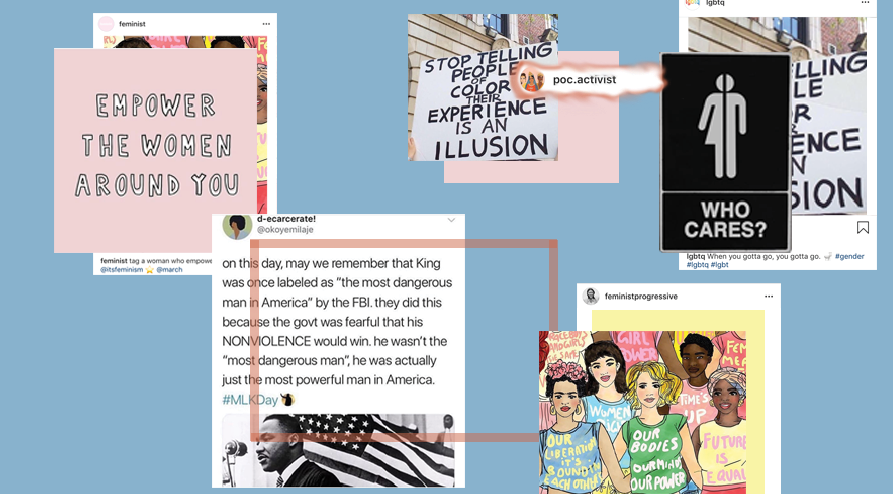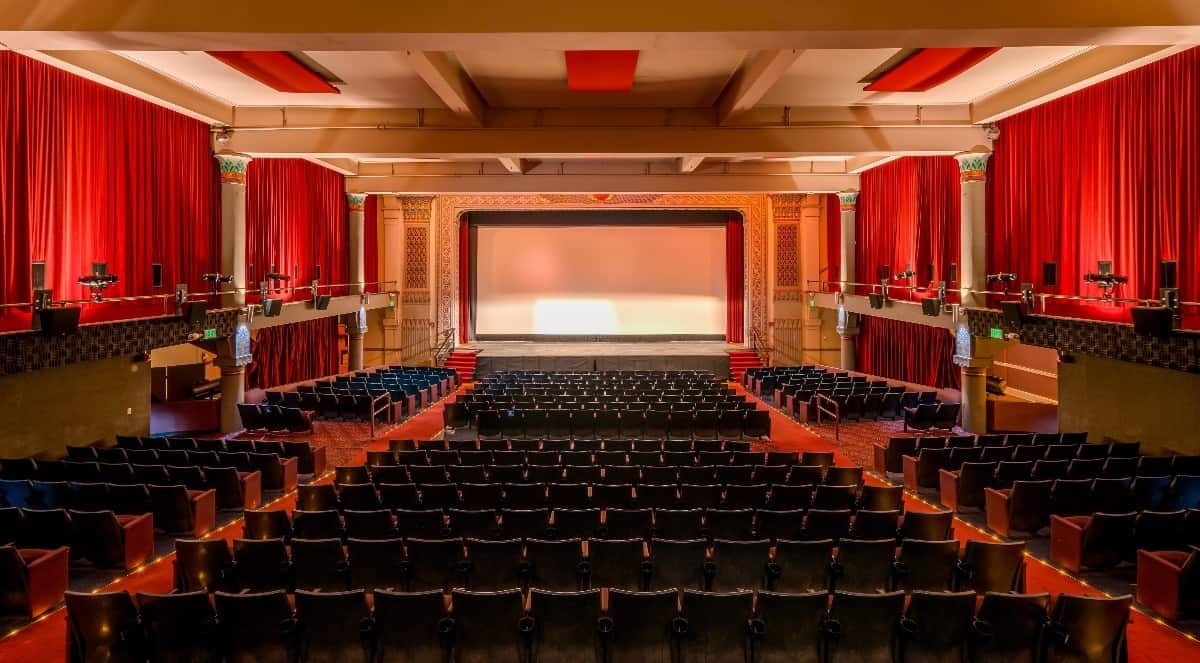Social media has changed the very fabric of our society.
With a simple click of a button, users are introduced to a world of actions and opinions of those living thousands of miles away. With this elevated access to conversation, people across the globe have utilized social media for beyond just socializing. Social media has revolutionized activism, an act that comes in the form of masses of people rallying under a common interest by making aspects such as organizing protests and spreading ideas far more accessible to a large audience. Today, social media serves as a pillar of activism by allowing hundreds, thousands, and even millions of people to stand with a movement and ignite change through the screen.
However, social media has also catalyzed a new problem: Performative activism.
Executed for show, performative activism stands as the antithesis of activism. It can come in many forms such as reposting activist media for the sole purpose of elevating one’s social standing, or stating support of a movement simply to join a “trend”. With the simple click of a button, users can create an online persona of caring about a movement while taking little action to make their online presence a reality. Uma Joshi Garcia, an ethnic studies teacher at the Oakland School for the Arts, describes performative activism as “following a trend, but not following through in your own personal life. It’s this idea that if I put on a show and make it seem like I care, I don’t have to do any self reflection on my contributions…nor do I need to further pursue any actionable items.” Turning activism into an act of care, without truly caring about the matter on a personal level and incorporating this care into the world, diminishes the impact of movement on the individual level. It turns activism, which stresses the importance of improving the world, into a shallow way of manipulating how one is perceived.
While this may seem harmless, those who participate in such acts often do not realize that their actions have the potential to cause harm. Ingrid Holda, a political columnist at The Shakerite, presents a sobering example with #blackouttuesday, a social media movement which intended to show solidarity with the Black Lives Matter movement by reposting black squares on Instagram for a single day. Holda asks readers, “Does a series of black squares on Instagram really help combat violence at the hands of police officers?” Rather than amplify Black voices, #blackouttuesday instead blocked out important information about protests, bail funds, and more. Moreover, studies following the movement demonstrated that the vast majority of participants in #blackouttuesday did little to involve themselves in the movement afterwards. According to the Pew Research Center, 24% of American social media users have posted or shared on social media in support of Black Lives Matter, but only 7% of Americans have attended Black Lives Matter protests. This disparity in the activism on social media and the activism in real life displays how social media activism is seldom translated into the real world to form tangible impact. When social justice is only considered important when it is “trending” or being widely accepted, but discarded once the trend passes (1.2 million Twitter users posted about Black Lives Matter daily in 2020, but only 400,000 Twitter users posted daily about Black Lives Matter in 2021), it can be incredibly harmful to the actual movement and have no actual impact on the people suffering.
This doesn’t necessarily mean that the actions usually seen as performative activism—such as reposting trending, informative posts and uploading stories to Instagram—are always performative in and of themselves. Mrs. Mazzini-Chin, an APUSH teacher at Horace Greeley, explains that “raising awareness and passing on a message … doesn’t have to be considered passive; it shows that people are taking a stance.” The intent behind an action and the steps taken after can turn something performative, into something productive. Reposting with the intent to continue working for the movement and taking tangible steps—no matter how seemingly small—turns a passive act into one of productivism, both online, and in one’s personal ideology. For instance, taking a moment to sign petitions increases the chances of goals within the movement of being achieved. Through self-education, users can gain knowledge about social justice issues to share with others. On the other hand, blindly reposting infographics online without proper education or immersion into the movement can spread misinformation.
The next time you’re reposting informative posts on social media, push yourself to extend your activism beyond just bumping a trending Instagram story. Research the topic more in-depth, sign a petition, look for nearby protests to attend. Take a few minutes to tell your friends about the movement, or bring up the cause at the dinner table with family. All these actions extend activism into your personal life, making it something that you are personally committed to, instead of something you are impersonally viewing.
At Greeley, you can also join activism-related clubs such as the BIPOC Student Union, ENOUGH (Educating Now On Understanding Genocide and Hate Club), SADD (Students Against Destructive Decisions), and many more. Taking the step to invest your time in these local, student initiatives alone is a large step towards productive activism.
So, when your fingers hover over that repost button on Instagram, take a moment and think carefully about your intent. What role am I playing in the movement? How will this help those that this movement intends to help?
If your answer is meaningful, go on and click it.
Categories:
Likes, Shares, and the Illusion of Change: The Dual Nature of Social Media in Activism
0
More to Discover
About the Contributor
Sara Jankovic, Co-Head of PR & Communications
Sara is a junior and a Co-Head of Communications for The Greeley Voice; in the past, she was a writer for The Greeley Voice. Sara is also involved with Greeley’s BIPOC Student Union as the Co-Head of Communication and is the Social Media Co-Director for Greeley’s Debate Club. In her free time, Sara enjoys going hiking and playing violin.





